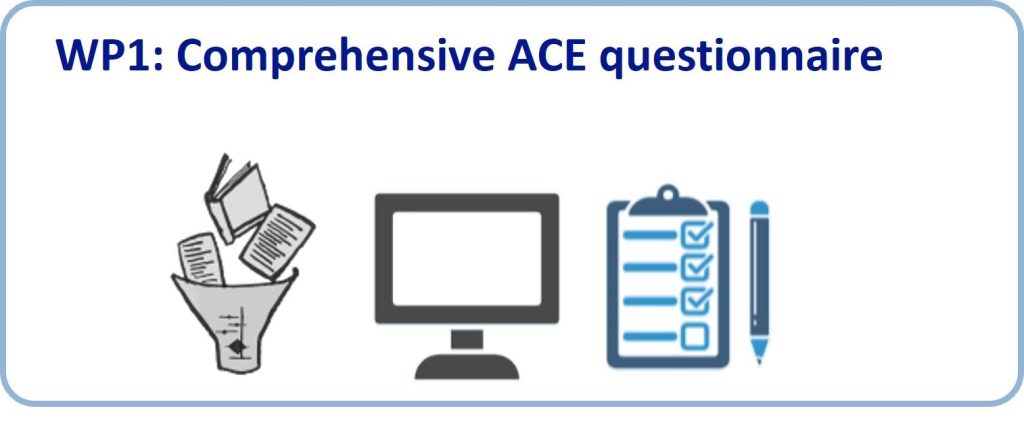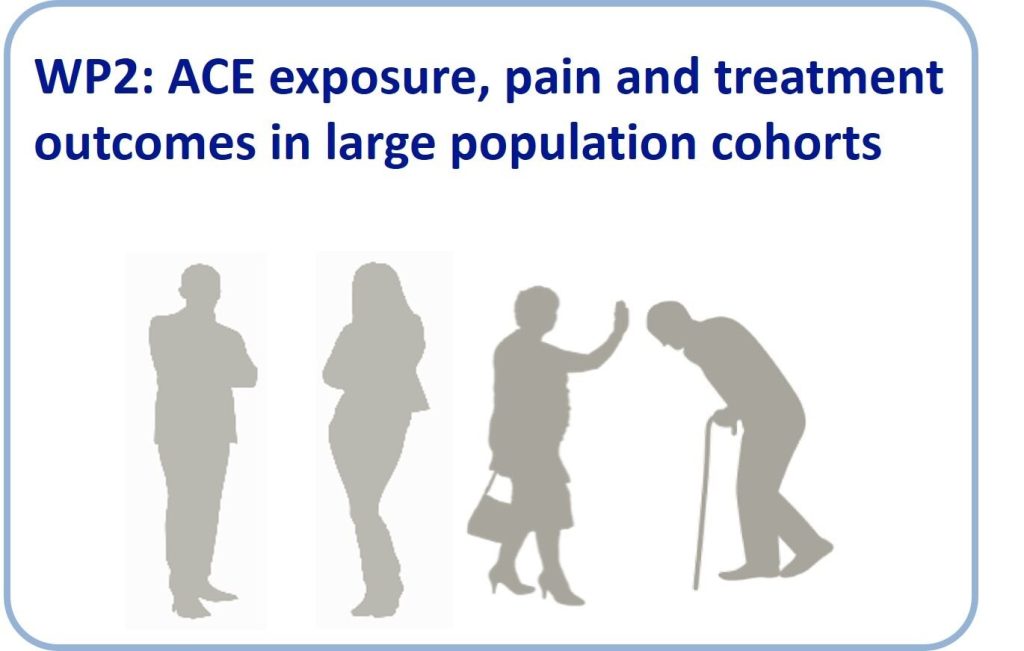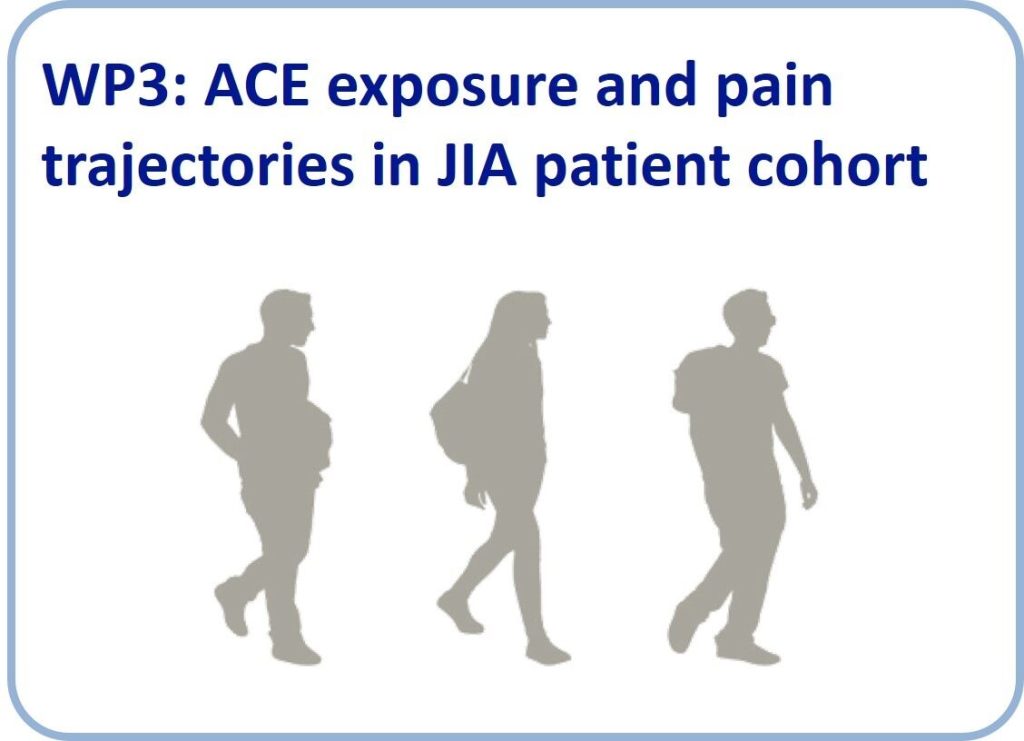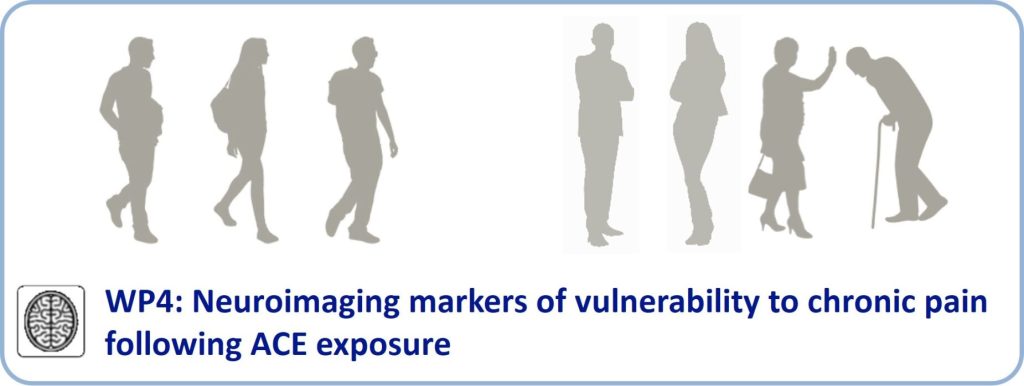Work Package 1

Work Package 1 focuses on the development of the CAPE adverse childhood experience questionnaire. This questionnaire will help us better understand the impact that adverse childhood experiences have on chronic pain and its treatment.
Before making our questionnaire, we analyse current approaches to determine what methods work best. We will also use the first-hand accounts of people with lived experience of adverse childhood experiences and/or chronic pain to ensure their views are accurately reflected in our research.
Throughout development we will continue to work alongside people with lived experience from planning to testing stages of the CAPE adverse childhood experience questionnaire.
Work Package 2
The aim of Work Package 2 is to use epidemiological methods to analyse the relationship between adverse childhood experiences and chronic pain. Epidemiological methods involved looking at information from a large number of people in a population and recording what happens to them, often through use of a questionnaire.
Therefore, in Work Package 2 we aim to find and analyse data from other universities and institutions that has already been collected, but that has not yet been used, to try to answer questions about adverse childhood experiences and pain.
The Cape Questionnaire (Work Package 1) will be distributed to people in large populations to collect information that we can combine with/compare to existing data to make sure we cover all areas of interest in our research.

Work Package 3

Many children with juvenile idiopathic arthritis (JIA) have mild or moderate pain that improves with treatment. However, some young people develop persistent pain that is not related to the severity of their JIA, and adults continue to report chronic pain following JIA. It is not clear which young people are at risk of developing persistent pain.
At the University College London Hospitals NHS Foundation Trust (UCLH), young people with JIA attend a specialist clinic for routine assessment and follow-up, and those aged 18-24 years are recruited into a larger study. In Work Package 3, we will recruit 50 participants with no/low pain trajectory and 50 with high pain trajectory from this larger study and have them take part in additional assessments. We will collect information about medical history, psychosocial variables (such as mood, function, and quality of life), adverse childhood experiences, sensitivity to pain, and brain structure and function, to identify factors associated with the development of persistent pain.
Results and analysis from this study will help us to identify potential risk factors associated with the development of poor pain and prescribing outcomes in some young people with JIA, and to prioritise pain management early in children with JIA in order to reduce the burden of chronic pain during adulthood.
Work Package 4
Work package 4 will use brain imaging data from existing population studies, alongside medical data, to investigate if there are changes in the brain that make some people who have adverse childhood experiences more vulnerable to chronic pain.
We already have data from volunteers in their 50s and 60s, so new brain imaging data will also be collected from the JIA patient group (work package 3) to see whether there are changes in brain structure and/or function that may be associated prolonged pain in those exposed to adverse childhood experiences.

Work Package 5

Work package 5 is investigating whether the impact of adverse childhood experiences on pain in later life can be explained by genetics. Everyone has a unique set of genes made up of DNA (which stands for deoxyribonucleic acid), and although our genes are largely unchanged throughout life, how the DNA is interpreted within the body can be altered through a process called epigenetics. This involves small chemical modifications to the structure of DNA that can determine whether a gene is switched on or off. Both stress and pain are known to cause epigenetic changes to the structure of DNA within neurones of the brain and spinal cord. Therefore, stress exposure in the form of ACEs may influence pain in later life by modifying genes within pain-sensing neurones, thereby altering their behaviour.
In Work Package 5 we will be testing this using blood and brain tissue from previous population studies in combination with information collected using our CAPE questionnaire (Work Package 1).
We will also work alongside Work Package 3 to establish whether epigenetic biomarkers are present within blood that suggest greater vulnerability to pain sensitivity. We will also determine if adverse childhood experiences and/or chronic pain are similarly linked to these epigenetic markers in the blood.
Lastly, we are using specialised neuronal cells that have been reprogrammed from blood and grown in a laboratory to determine whether their exposure to stress inducing hormones initiates long-term epigenetic changes to DNA that can alter how to body controls pain.
